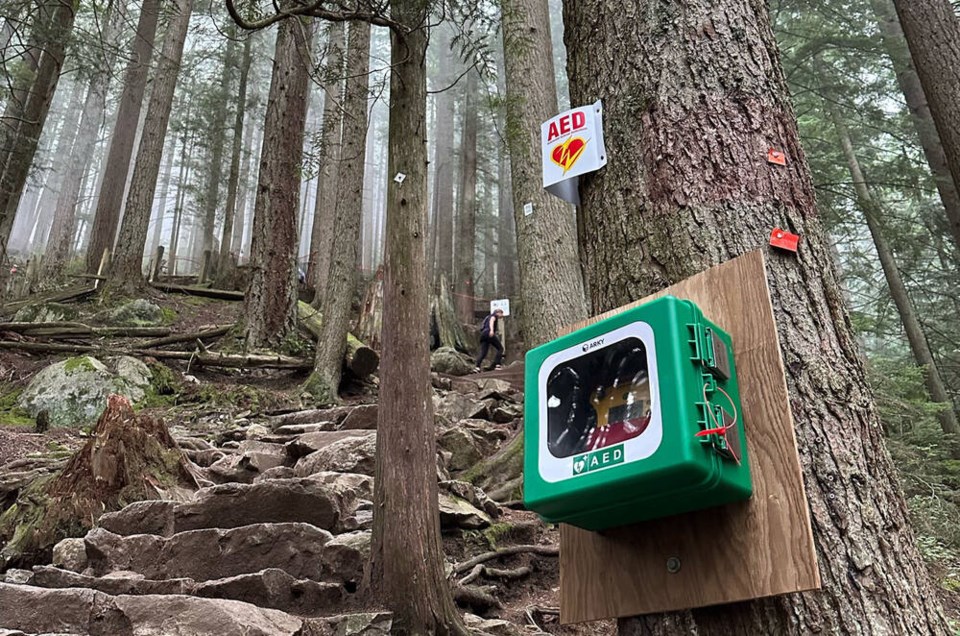Metro Vancouver has installed some potentially life-saving equipment along one of the region’s most popular and potentially deadly trails – the Grouse Grind.
Hikers headed up “Mother Nature’s StairMaster” will find the battery-powered automated external defibrillators, or AEDs, affixed to signposts at the one-quarter, one-half, and three-quarter points of the trail, which sees more than 100,000 climbers per year, according to Grouse Mountain.
Metro Vancouver supervisor of parks operations Tyler Langeloo said the regional authority agreed to purchase and install the defibrillators on a pilot basis after meeting with District of North Vancouver Fire and Rescue Services and North Shore Rescue, the agencies that respond when there is a medical emergency on the trail.
Numerous people have died on the Grind in recent years after apparent heart attacks.
“We know that those incidents have occurred in the past,” Langeloo said. “This just provides one more opportunity to give quicker care to the patient.”
Every year, there are about 35,000 cardiac arrests in Canada. The likelihood of surviving one drops by 10 per cent every minute after person’s heart stops.
If someone is going into cardiac arrest on a trail, the first steps should always be to call 911 and start CPR, Langeloo said. But the AEDs are designed specifically to be used by bystanders with no medical or first aid training.
“They’re very user friendly. They’ll be able to talk you through exactly what you should be doing and how to use them,” he said. “Hopefully we don’t see a lot of use but just the fact that they’re there, I think, is exciting, and it’s just another layer of preparedness for the public.”
Fire Chief Mike Danks said he has no doubt the pilot project will be a success. Because the Grouse Grind is a famous must-do experience for locals, tourists and even, occasionally, celebrities, it sometimes draws in hikers who don’t realize they are biting off more than they can chew.
“Time and time again, we get calls for cardiac issues on that trail,” Danks said. “Having AEDs accessible on that trail that are available for public use is going to be an absolute game changer that will save lives over and over again. The importance of having access to an AED right away in cardiac issues is imperative. It makes the difference.”
Danks said he’d like to see the pilot extended to other trails around Metro Vancouver.
This year, the trail will be closing for the season on Oct. 7, allowing crews carry out annual fall maintenance projects.




